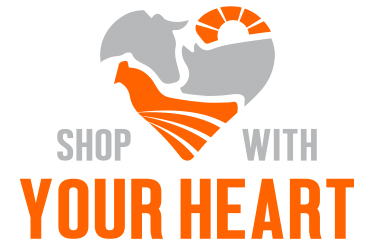
Farm: Echo Farm
Location: Hinsdale, New Hampshire
Operation Profile: 100 cows (Milking Shorthorns & Jerseys)
Certification: Certified Humane®
Background
In 1987, Bob and Bonnie Hodge purchased 35 acres in Hinsdale, New Hampshire. Their goal was to start a 4-H club on the property to show horses, sheep, and eventually cows. In 1990, their daughters, Beth and Courtney, convinced them to buy Milking Shorthorn heifers, and a dairy operation slowly formed. After returning from college, Beth and Courtney took over farm management and developed the Echo Farm Puddings business. Today, Echo Farm milks approximately 100 cows—half Milking Shorthorns, and half Jerseys. Echo Farm sells its “Echo Farm Puddings” products through distributor United Natural Foods, Inc., as well as at Whole Foods Market® and various other retailers, primarily in New England and the New York City metro area.
Getting Certified
In 1999, the Hodges heard about an animal welfare certification program and applied when they realized that their operational practices complied with many of the program’s standards. When one of the certification program's leaders, Adele Douglass, departed to found a new program, Humane Farm Animal Care (HFAC), the Hodges applied to HFAC for certification. Echo Farm was approved, making it the first dairy farm to become Certified Humane®.
According to the Hodges, they did not have to undertake significant transition costs to become HFAC-certified. They attribute this to being first-generation farmers who did not have to contend with revising longstanding practices that fall outside program standards. Currently, beyond the standard application fee of $75, Echo Farm pays between $900 and $1000 for the inspection fee and certification costs—a “royalty,” as Beth puts it, that Echo Farm pays HFAC per product with the Certified Humane Raised and Handled® label. However, according to Beth, the increased revenue that results from their certification, as well as the market access the certification enables, far outweighs these costs.
Beth reports that the HFAC inspections have been rigorous, particularly in the beginning, when the inspector would spend a full day at the farm. However, now that the program has familiarity with their operation, the inspector typically spends a half-day on site. Nonetheless, Beth said that she and her employees usually spend two full days preparing for the inspection to ensure that all relevant paperwork is readily accessible. Echo Farm has gone through the Corrective Action Plan process a few times for minor inconsistencies with HFAC standards, sometimes from standards being amended, but have been able to correct any deficiencies.
HFAC Certification Outcomes
Product Differentiation & Business Growth. Beth believes that there is increasing concern from consumers about how farm animals are treated, and sees the Certified Humane Raised and Handled® label—which she uses on the farm’s website as well as on all of their product packaging—as providing validation for their business’s animal welfare claims.
Also, according to Beth, the certification has opened doors to retail stores that the farm could not have otherwise accessed, such as Bread & Circus retail stores, which were eventually acquired by Whole Foods Market®. This increased market access has translated to increased revenues.
Improved Farm Practices & Business Organization. HFAC required stricter protocols than their family had been observing for things like keeping water and food separate from manure, for keeping concrete alleyways clear of mud, and for maintaining sufficient and well-organized records and emergency plans.
Technical & Marketing Support. HFAC has opened up opportunities for Echo Farm Puddings by offsetting their costs in attending a trade show and providing them with marketing materials. It has also provided them technical advice on how they could improve animal welfare practices on their farm. Finally, being certified by HFAC has enabled Echo Farm to connect with other certified members who, in turn, have provided Echo Farm with marketing and technical advice of their own.
Why Certify with HFAC?
According to the Hodges, “With the increased scrutiny by both consumers and retail chains, being certified has helped our business grow, especially in the natural products sector, and it has helped to differentiate our products from others on the shelf. We believe that the majority of farmers will find that the standards make sense and complying actually improves a farm’s productivity.”

 Take the Shop With Your Heart survey and get materials that will help you make great shopping decisions.
Take the Shop With Your Heart survey and get materials that will help you make great shopping decisions.